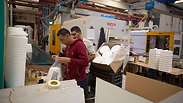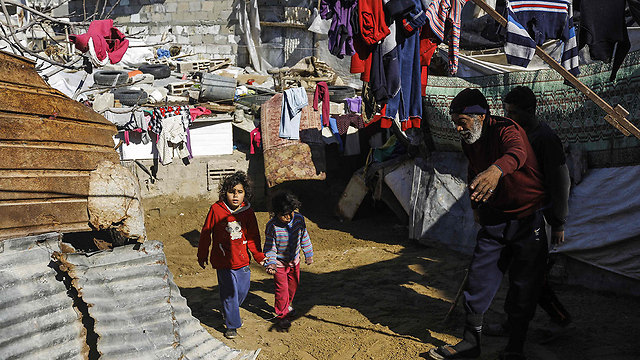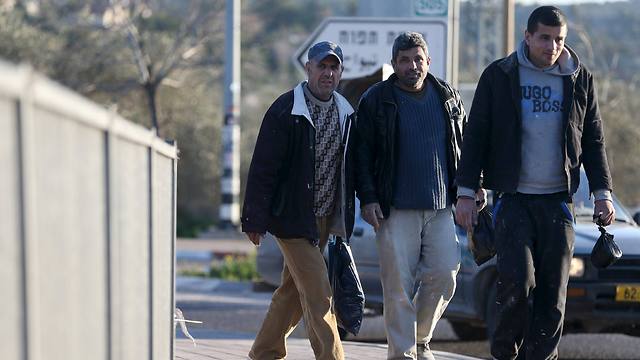

Gazan workers in Israel: A mutual interest
Op-ed: Everyone is warning against a humanitarian crisis in the strip, including Israeli ministers, but the current policy is to do nothing; on the practical level, restrictions could be eased in a way that would benefit both sides, Israeli employers and Gazans who need work.
For decades, most of the men living in Jabalia would go out to work in Israel. They built the buildings and neighborhoods we live in and worked our fields, until the second intifada began in 2000. When it was over, labor in Israel died down and was completely halted after the 2005 disengagement from Gaza. Now, most of the refugee camp’s inhabitants are unemployed, living off UNRWA’s food allocations.
The Gaza Strip is facing a collapse in all civil areas. The hospitals are in very bad shape, the rickety infrastrctures could lead to an outbreak of diseases and epidemics, the economy is ruined, and about half of the workforce there is sitting at home jobless. The international aid organizations are not the only ones warning against the horrible situation there. So is the Israeli defense establishment.
About a month ago, while visiting the Erez Crossing on the Gaza border, I met Nabil Bawab, a Gazan businessman who owns a textile factory in the Karni industrial zone, north of Gaza. Bawab is one of 551 businesspeople from the strip with a permit to enter Israel.
Up to two years ago, Israel let 3,500 Gazan businesspeople enter the country and do business here. The number of permits decreased for security reasons, but for other reasons too. The grave economic situation of Gaza’s population has considerably reduced the purchasing power, and many businesses have closed down. The grave situation is also reflected in the amount of goods entering the strip through the Kerem Shalom crossing, which has dropped significantly in the past year. When people have no money, there’s no point in bringing in clothes, food and other commodities.
Bawab employs 370 workers in a factory which manufactures clothes to 10 Israeli companies. The total income of the factory and the workers comes from the Israeli market. He crosses into Israel at least three times a week, and travels to Tel Aviv and Haifa to meet with representatives of the companies he works with and take orders. His 370 workers and their family members earn a decent living and have enough money to buy food, although frugally.
Not far from Bawab’s factory, in the greenhouses of Moshav Netiv Ha’asara, farmer Sa’ar Peletz is in desperate need of working hands. “Give me 40 Gazan workers now, and I’ll hire them without thinking twice,” he says, complaining about the high costs of employing Thai workers.
Other farmers in the Gaza vicinity communities are also in desperate need for laborers to work the fields bordering on the strip. About half a year ago, they tried to lead a move to bring 5,000 laborers from Gaza to work in their fields. The army was in favor of the move, the Civil Administration voiced its support too, but the political echelon is hesitant.
Everyone is warning against a humanitarian crisis in the strip, including Israeli government ministers, but the current policy is to do nothing. It’s legitimate to ask to whether Israel should help the strip’s residents, and to what extent, especially as Hamas and Islamic Jihad are digging attack tunnels under our territory for the purpose of carrying out terror attacks.
But on the practical level, restrictions could be eased in a way that would benefit both sides, the Israeli employers and the Gazans who need work.
Like in the West Bank, the Shin Bet would be responsible for the arrival of workers from Gaza and leave out the ones who might post a security risk. They could start with several hundred people and see how it goes.
As Bawab the industrialist says, “When people earn a living, things are calm. They don’t care about anything else.”

















